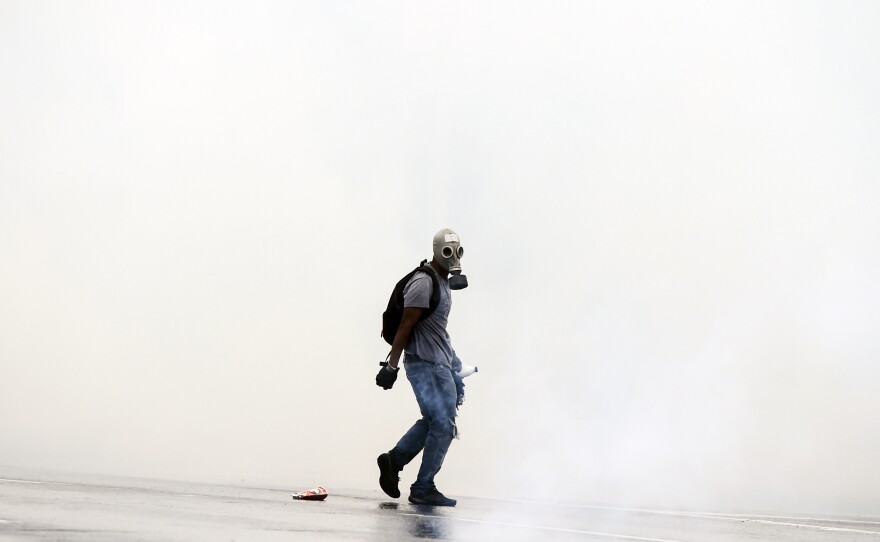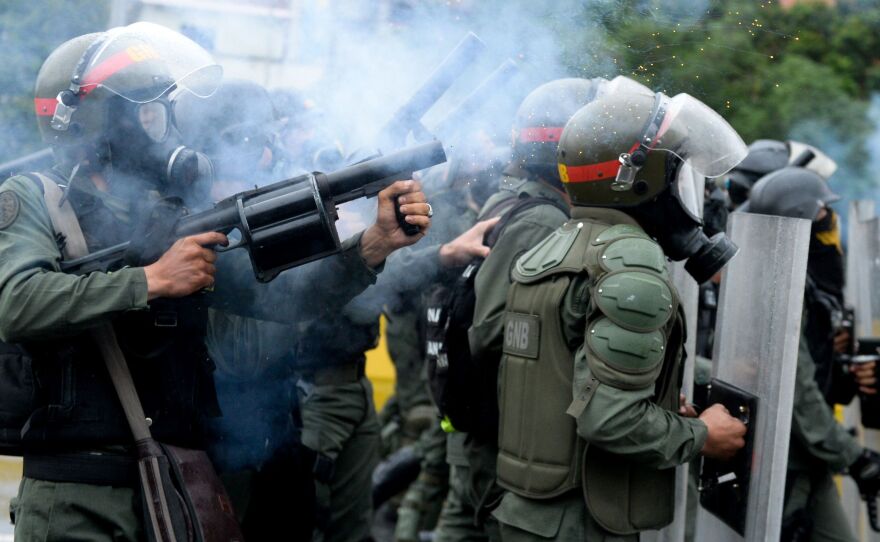
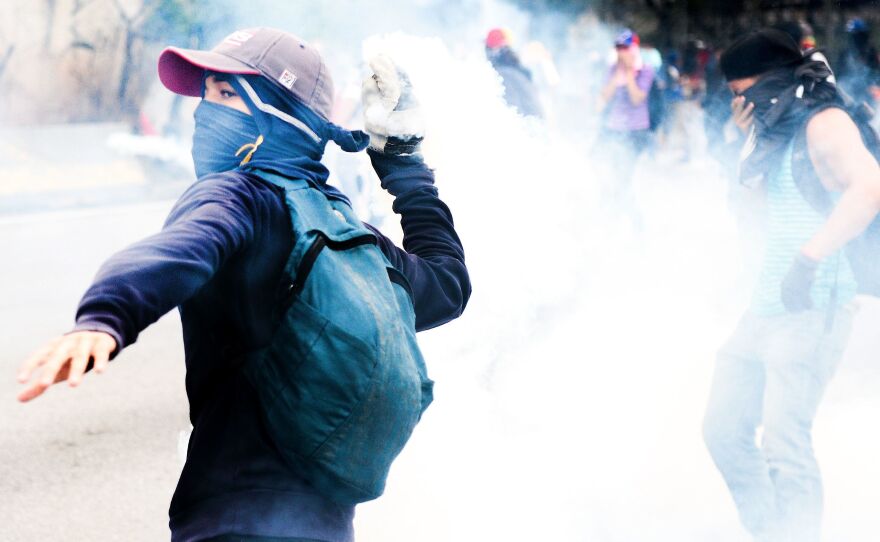
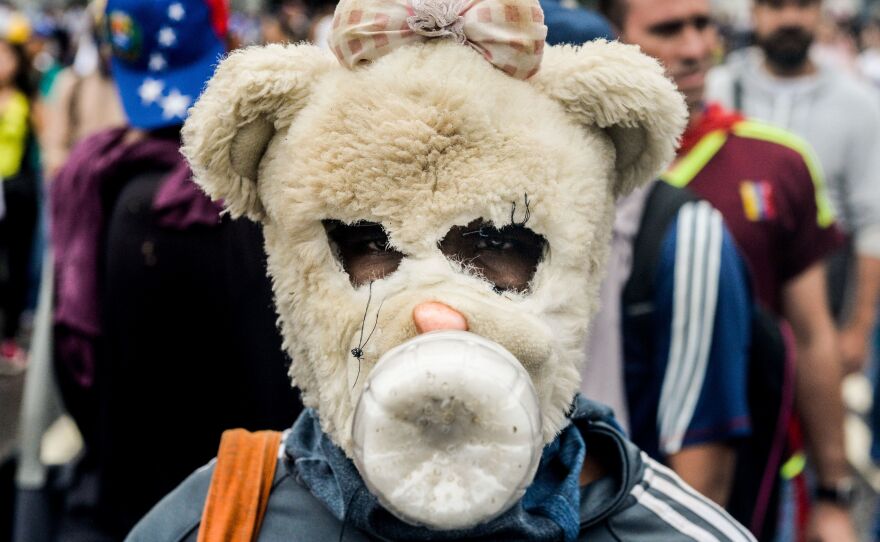
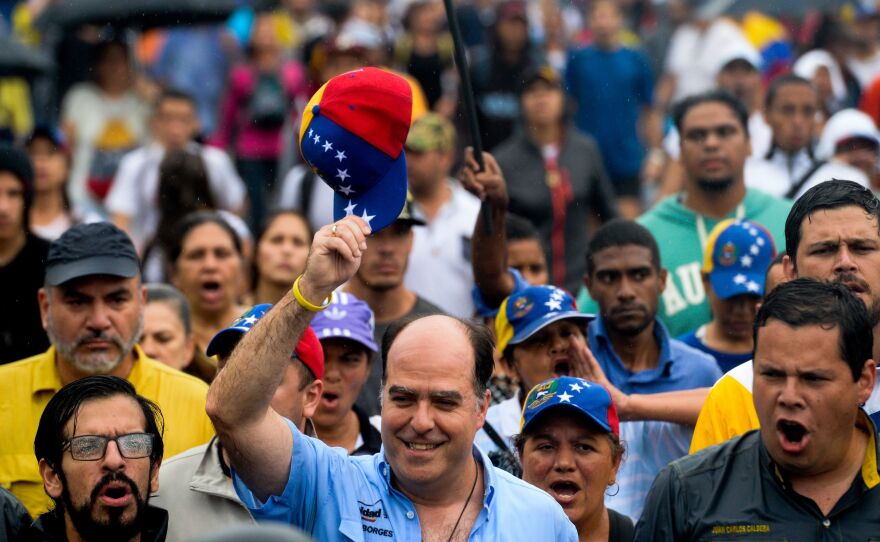
Protests are mounting against embattled Venezuelan President Nicolas Maduro, and the death toll is mounting too. As demonstrators braved a tropical storm on the streets of Caracas on Thursday, a 36-year-old died elsewhere of wounds he had sustained in other protests days earlier.
Opposition lawmaker Alfonso Marquina announced Gruseny Antonio Calderon's death on Twitter, calling him "another victim of the dictatorship."
Calderon is the fifth protester to die of injuries sustained in clashes with police since the latest round of protests kicked off roughly two weeks ago. According to authorities, others include a 13-year-old boy and two college-age students.
Despite the deaths, the recent unrest shows no sign of relenting. The Associated Press reports organizers had planned protests for more than 300 municipalities — calling for new elections and the removal of certain judges seen as overly friendly with Maduro's regime — and demonstrations have even swelled to low-income areas of Venezuela's capital city, where socialists have typically drawn their staunchest supporters.
And the AP notes that as security forces have turned to crowd-control devices such as tear gas, protesters have responded by "coming ready with goggles, vinegar-soaked rags and gas masks."
The protests mark a stark contrast with Holy Weeks of years past in Venezuela, where many people use the time — and vacation days — to celebrate and rest, according to the Miami Herald. The paper even notes that Maduro's ruling socialist government offered people additional vacation days this year, partly in an attempt to encourage a lull in demonstrations.
That didn't convince demonstrators in Caracas like 64-year-old Alfonzo Lopez Porras to stay home.
"Those of us who are on our way out of this world have much to protest," he told the Herald. "There's no bread or medicine. In every corner of Venezuela, this socialist project has failed."
As John Otis reported for NPR, dissatisfaction with the ruling Socialist regime has been partly fueled by a scarcity of bread. Citing the Venezuelan Bread Makers Federation, John says that "due to a cash crunch, the Maduro government is importing only about 25 percent of the wheat that the country needs."
John reports that Maduro asserts that the scarcity is driven by mismanagement of flour by bakers seeking to undermine his government.
What's more, there has been little electoral outlet for protesters to voice displeasure with Maduro. Elections that had been planned for late last year were indefinitely postponed, and John reports a recall referendum — which could have removed Maduro — was canceled last year, as well.
About two weeks ago Venezuela's Supreme Court, which is filled with Maduro loyalists, backed down from its bid to nullify the opposition-dominated national assembly. The reversal came after overwhelming international criticism of the initial move.
Maduro's popularity has reached such a nadir, in fact, that the president was pelted with debris during a public appearance earlier this week. That bombardment was broadcast on Venezuelan TV.
And it's not likely to get easier for Maduro anytime soon.
The Venezuelan president enters his fifth year in power on April 19 — the same day demonstrators have promised to hold the "mother of all protests."
Copyright 2017 NPR. To see more, visit http://www.npr.org/.


